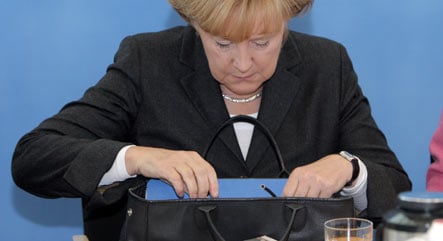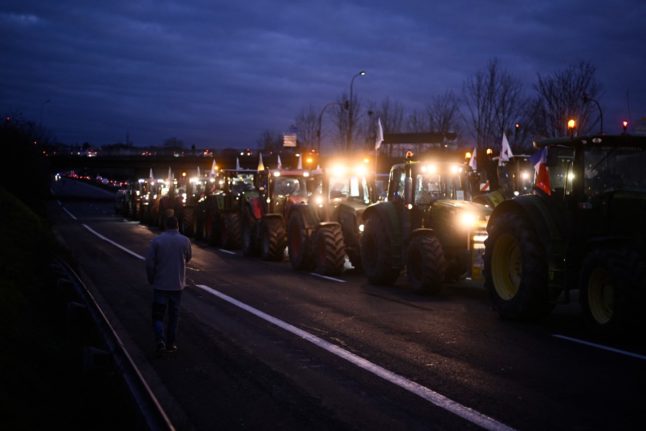The government will provide some €80 billion in fresh capital and some €400 billion in guarantees for interbank lending.
“Today’s measures are the first element of a new financial market charter … but it can only be worthy of the name if it is followed by a second element, namely a change in international rules,” Merkel said at a press conference in Berlin.
The Finance Ministry hammered out the rescue package over the weekend as Merkel attended an emergency EU summit in Paris to deal with the ongoing financial crisis.
“I know that today we decided on extensive, far-reaching and in part radical measures,” Merkel said. “They have one aim: They should help to bring new trust, trust between banks, trust in the economy, trust in people.”
She added she expected Berlin’s rescue package, which will require the government to set aside €100 billion in the budget to fund the measures, to become law by Friday. Merkel also warned the financial crisis made it likely the government would have cut its growth forecast for next year and that it would make it difficult to balance the budget as planned by 2011.
However, bosses of those banks which decide to take the government aid can expect to have their pay capped, according to the parliamentary floor leader of Merkel’s Christian Democrats Volker Kauder.
“Wherever we take action, we will also change the compensation system for the upper levels of management,” Kauder told public broadcaster ARD.
And the German state is expected to take stakes in the banks in a partial nationalisation similar to plans announced in Britain in return for any capital injection.
Last week Berlin put together a €50-billion rescue of Hypo Real Estate, the country’s fourth biggest bank, but this took the form of guaranteeing badly needed credit lines rather than the state taking a stake in the stricken commercial property lender.
Now though a drying up of the amount of liquidity held by German banks – as markets have tumbled in the past week and short-term lending has become even harder to secure – has forced a re-think in Berlin.
It has also became clear that the worst hit are not private German banks like Deutsche Bank but the Landesbanks, the regional lending powerhouses that are owned by Germany’s 16 states.
Merkel has been at pains to stress, however, that the rescue package is not a blank cheque and that banks in future will face much tougher regulatory scrutiny.
Taxpayers “have the right to expect that if they are contributing to the stability of the financial system that this will be honoured,” Merkel said in Paris on Sunday.



 Please whitelist us to continue reading.
Please whitelist us to continue reading.